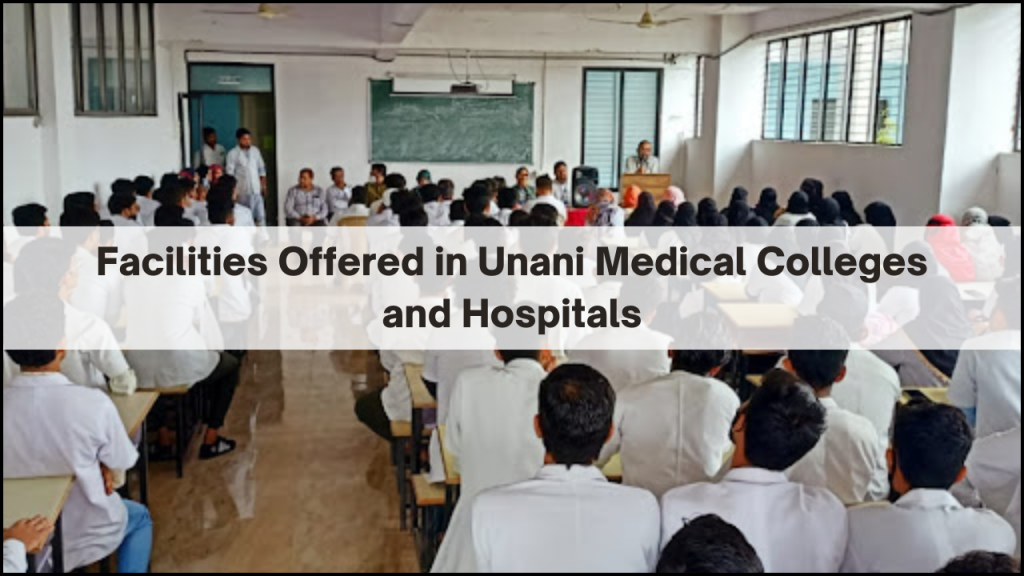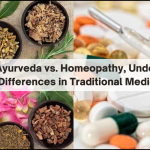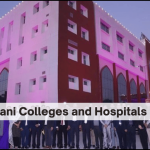
Unani medicine, one of the oldest traditional healing systems, has been practiced for centuries. Rooted in the teachings of Hippocrates, Avicenna (Ibn Sina), and Galen, Unani medicine emphasizes holistic healing, herbal treatments, and lifestyle management. With growing awareness and demand for alternative medicine, Unani medical colleges and hospitals have expanded their infrastructure to offer modern facilities while preserving the essence of traditional healing.
Unani medical colleges not only educate students but also provide healthcare services through their affiliated hospitals. These institutions ensure that students receive quality education, hands-on training, and research opportunities, while patients benefit from affordable and effective treatment.
This article explores the various facilities provided in Unani medical colleges and hospitals, highlighting their role in academic excellence, clinical training, and holistic patient care.
1. Well-Equipped Academic Facilities
1.1 Lecture Halls & Classrooms
Unani medical colleges have wide, well-furnished lecture halls equipped with:
- Modern teaching aids (projectors, smart boards)
- Audio-visual systems for better learning
- Comfortable seating arrangements
These classrooms provide an ideal environment for students to grasp the fundamentals of Unani medicine effectively.
1.2 Laboratories for Practical Training
Since Unani medicine involves herbal formulations, pathology, pharmacology, and diagnosis, colleges have dedicated laboratories for:
- Pharmacology & Herbal Medicine Lab – To study the properties of medicinal herbs.
- Pathology & Microbiology Lab – For diagnosing diseases and conducting research.
- Physiology & Biochemistry Lab – To understand human body functions.
- Ilaj-Bit-Tadbeer Lab (Regimenal Therapy Lab) – To practice hijama (cupping therapy), leech therapy, and massage therapy.
1.3 Herbal Garden & Drug Testing Facilities
A herbal garden is an essential feature of a Unani college, where students learn to identify and cultivate medicinal plants. Some institutions also have drug testing laboratories to maintain quality standards for herbal medicine production.
1.4 Digital & Traditional Library
Unani colleges house well-stocked libraries with:
- Classical Unani books (Canon of Medicine by Avicenna, Al-Hawi by Razi)
- Modern medical textbooks
- Research journals & online resources
Some institutions have digital libraries, giving access to e-books, journals, and global Unani research papers.
2. Hospital Facilities & Patient Care Services
2.1 Outpatient Department (OPD) Services
Unani hospitals provide outpatient consultation services where patients can get:
- Diagnosis by Unani physicians
- Herbal & holistic treatment for chronic diseases like arthritis, asthma, digestive issues, and skin disorders
- Lifestyle counseling & dietary recommendations
2.2 Inpatient Department (IPD) & Ward Facilities
For patients needing long-term treatment or specialized care, hospitals have inpatient wards with:
- Separate male & female wards
- Well-maintained general & private rooms
- 24/7 medical supervision
Unani hospitals focus on natural healing, ensuring a peaceful environment for recovery.
2.3 Regimenal Therapy (Ilaj-Bit-Tadbeer) Centers
One of the unique aspects of Unani medicine is Ilaj-Bit-Tadbeer, which includes:
- Hijama (Cupping Therapy) – Detoxifies the body and improves circulation.
- Leech Therapy – Used for skin diseases, arthritis, and inflammatory conditions.
- Massage Therapy – Provides relief for joint pain and stress disorders.
- Mud Therapy & Hydrotherapy – Natural treatments for skin conditions and detoxification.
These therapies are available in dedicated wellness centers within Unani hospitals.
2.4 Specialized Unani Pharmacies
Unani hospitals have in-house pharmacies that provide:
- Authentic Unani medicines prepared from herbs, minerals, and natural compounds.
- Customized prescriptions based on a patient’s mizaj (temperament).
- Quality-controlled formulations approved by regulatory bodies.
Some hospitals even have Unani medicine manufacturing units, where traditional formulations are prepared following ancient principles.
2.5 Diagnostic & Radiology Services
While Unani medicine primarily relies on pulse diagnosis and clinical observations, many hospitals integrate modern diagnostic facilities, such as:
- Pathology labs for blood tests, urine analysis, and microbiology tests.
- X-ray, ultrasound, and ECG services to support Unani physicians in diagnosis.
3. Research & Development (R&D) Centers
To keep Unani medicine relevant in modern healthcare, colleges and hospitals establish R&D centers focusing on:
- Clinical trials on herbal medicines
- Innovative drug formulations
- Integration of Unani medicine with modern healthcare
Government organizations like Central Council for Research in Unani Medicine (CCRUM) collaborate with Unani medical institutions for research projects and advancements in Unani therapies.
4. Internship & Training Facilities for Students
4.1 Practical Internship in Hospitals
Every BUMS student undergoes one year of compulsory internship, which includes:
- Hands-on training in Unani hospitals
- Exposure to real patient cases
- Experience in herbal pharmacy & Unani treatment methods
4.2 Workshops & Seminars
Colleges organize regular workshops, guest lectures, and national/international conferences to keep students updated on:
- Recent advancements in Unani medicine
- Herbal drug research
- Alternative healing techniques
5. Additional Facilities
- Hostels & Accommodation – Separate hostels for boys and girls with good security.
- Canteen & Food Services – Nutritious and hygienic food facilities.
- Sports & Recreational Facilities – Gym, yoga sessions, and cultural activities.
- Transport Facilities – College buses for students and staff.









